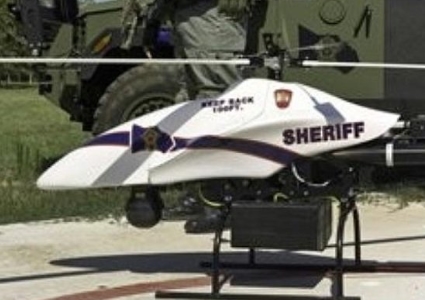Trustee Elections
These are the original issues in this subcategory
- SOCIAL MEDIA PRIVACY
- FACIAL RECOGNITION
- DOMESTIC DRONES
Drones, or unmanned aerial vehicles, are aircraft either remotely controlled by a pilot on the ground or autonomously flying a pre-programmed mission. Currently, anyone can purchase and legally fly a drone in most parts of the country, and more than 1.3 million drones are now registered with the FAA, up from about 470,000 in 2016. However, advocates say these developments may not be good news to those who value their privacy. Hobbyist pilots are required to keep their drones in sight, below 400 feet, and out of airspace meant for passenger-carrying airplanes. Local and federal law enforcement agencies are rapidly increasing their use of domestic drones and manufacturers are considering arming these drones with nonlethal weapons like rubber bullets, Tasers and tear gas. Drones are used for search and rescue, photography, spotting wildfires, monitoring crops, patrolling our borders, and online retailer Amazon has even started using drones to deliver packages.
The FAA recently announced new rules that will allow small drones to fly over people and at night, a big step toward their eventual use for widespread commercial deliveries. The agency claimed these rules will address security concerns by requiring remote identification technology in drones that enable their identification from the ground.
Pending Legislation: S.600 - Drone Integration and Zoning Act
Sponsor: Sen. Mike Lee (UT)
Status: Senate Committee on Commerce, Science and Transportation
Chair: Sen. Maria Cantwell (WA)
The FAA recently announced new rules that will allow small drones to fly over people and at night, a big step toward their eventual use for widespread commercial deliveries. The agency claimed these rules will address security concerns by requiring remote identification technology in drones that enable their identification from the ground.
Pending Legislation: S.600 - Drone Integration and Zoning Act
Sponsor: Sen. Mike Lee (UT)
Status: Senate Committee on Commerce, Science and Transportation
Chair: Sen. Maria Cantwell (WA)

- I oppose reforming current domestic drone policy and wish to donate resources to the campaign committee of Leader Charles Schumer (NY).
- I support:
1.) Designating the area between 200 feet and 400 feet above ground level for use of civil unmanned aircraft systems.
2.) Requiring a property owner's permission to operate a civil unmanned aircraft in the immediate reaches of airspace above private property.
3.) Preserving state, local, and tribal authority to issue certain reasonable restrictions on the operation of a civil unmanned aircraft system within 200 feet of the ground or a structure.
4.) Establishing a process for the designation of routes above 200 feet of the ground as authorized commercial routes.
And wish to donate resources to the campaign committee Sen. Maria Cantwell (WA) and/or to an advocate group currently working with this issue.
- I support:
1.) Designating the area between 200 feet and 400 feet above ground level for use of civil unmanned aircraft systems.
2.) Requiring a property owner's permission to operate a civil unmanned aircraft in the immediate reaches of airspace above private property.
3.) Preserving state, local, and tribal authority to issue certain reasonable restrictions on the operation of a civil unmanned aircraft system within 200 feet of the ground or a structure.
4.) Establishing a process for the designation of routes above 200 feet of the ground as authorized commercial routes.
And wish to donate resources to the campaign committee Sen. Maria Cantwell (WA) and/or to an advocate group currently working with this issue.
There has been $0.00 pledged in support of this issue
Trustee Election - Opening Date
October 18, 2021
Trustee Election - Closing Date
October 25, 2021